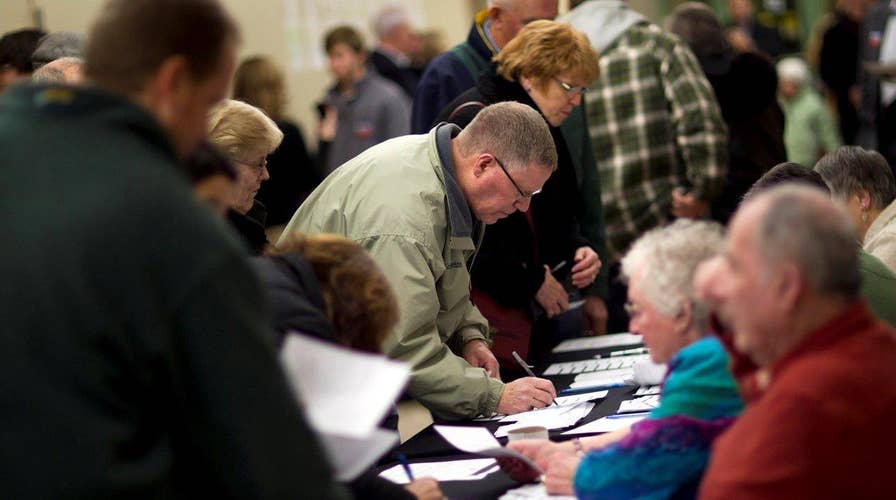The importance of the Iowa caucuses
Matt Schlapp weighs in on who has the best chance in the early primary states
The Iowa caucuses will be held Monday, the first-in-the-nation test for the 2016 presidential candidates.
Which begs the question: how does a caucus work?
A caucus -- a type of vote held in several states, and not just Iowa -- is more complex than a simple primary. Rather than checking a box for a specific candidate, caucus-goers on Feb. 1 will dive into a more interactive process.
In the case of the Democratic caucuses, Iowans may be required to give up a few hours or more of their evening. Getting in and out of a caucus venue quickly is not a realistic expectation. That is why good campaigns are measured by their "ground game" -- which involves getting people to caucus sites.
When voters arrive at the caucus site at 7 p.m. local time, they will be asked to congregate in their preferred candidate's corner.
Caucus captains will make speeches and lobby to entice voters over to their side.
Typically, if a campaign's group cannot attract at least 15 percent of the total caucus-goers in the room, the group's members either leave or join one of the other, larger groups.
Eventually, the final tally is divided among the campaigns, once voters are firmly in a corner and all "unviable" candidates are weeded out. The candidate with the most, wins.
The final tally is then forwarded to the state party. This year, the Democrats also are allowing "tele-caucusing" via satellite for military voters, students and other Iowans living abroad who cannot attend the events in person.
The GOP contest is more straightforward.
Voters go to one of the caucus sites beginning at 7 p.m. local time. There, local party precinct captains -- and perhaps in some cases the candidates themselves -- will be allowed to make brief speeches to persuade voters over to their side. Then paper balloting begins.
The results will be handed over to the state party, which will turn them over to the news media.
Voters in the Republican caucus must be registered with the party, and only registered Democrats can vote in that caucus. However, there will be same-day registration available for both parties at the nearly 1,700 caucus sites across the state.





